Someone said “Everybody listens to advice. Nobody ever takes it”.
But, oh, I hope you take this advice from the Protopresbyter Thomas Hopko.
So my advice is: Put his Maxims in an icon on your computer screen, labeled in capital letters so you will see it and open it often. Or print out the Maxims and put them in your daily prayer book, or in your icon corner. Because this is good.
But first, let me tell you about him.
Father Thomas Hopko
Father Tom, as almost everyone seemed to call him, was born in 1939 in Endicott, New York, baptized and raised in the Carpatho-Russian jurisdiction of the Orthodox Church. He had a 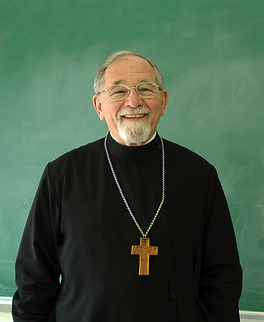 public school education, then studied at Saint Vladimir’s Seminary. He married Anne Schmemann, daughter of the noted Orthodox theologian Father Alexander Schmemann. They had five children and, at the time of his death, fifteen grandchildren. Father Thomas served as pastor of a church in Ohio, then two in New York, before becoming Professor of Dogmatic Theology at Saint Vladimir’s, where he later became Dean.
public school education, then studied at Saint Vladimir’s Seminary. He married Anne Schmemann, daughter of the noted Orthodox theologian Father Alexander Schmemann. They had five children and, at the time of his death, fifteen grandchildren. Father Thomas served as pastor of a church in Ohio, then two in New York, before becoming Professor of Dogmatic Theology at Saint Vladimir’s, where he later became Dean.
Father Thomas belonged to the Orthodox Church in America and represented them in the World Council of Churches. He was President of the Orthodox Theological Society in America. He was a prolific author, much sought as a speaker. Check out this extensive listing of his books, articles, podcasts: https://www.svots.edu/very-rev-thomas hopko/ More of his podcasts than I have time to count are available at: https://www.ancientfaith.com/podcasts/hopko
 After retiring in 2002, he and Matushka Anne lived at the women’s Monastery of the Transfiguration in Ellwood City, Pennsylvania. He died there on March 18, 2015, at age 75. Over 350 people from all over North America gathered for his funeral.
After retiring in 2002, he and Matushka Anne lived at the women’s Monastery of the Transfiguration in Ellwood City, Pennsylvania. He died there on March 18, 2015, at age 75. Over 350 people from all over North America gathered for his funeral.
That’s the dry biography.
Now let me tell you what I knew of the man.
Father Tom and me
Did I know him well? No. Not at all. Which makes my experience with him all the more remarkable.
I had heard of Father Thomas Hopko. I think I had read a couple of his instructional books from The Orthodox Faith series. Then in 1987 he spoke at a conference here in Milwaukee. By then I was seriously interested in Orthodoxy, so I went to hear him.
I thought his lectures were phenomenal. He spoke without notes and with a vast amount of knowledge at his command. To make a point he would occasionally without warning briefly go off into Greek, Latin, Hebrew, Church Slavonic, and I don’t know what else. He could certainly turn an elegant phrase, but for the most part his manner of speaking was “ordinary”, so to speak, conversational, down to earth. I compared it at the 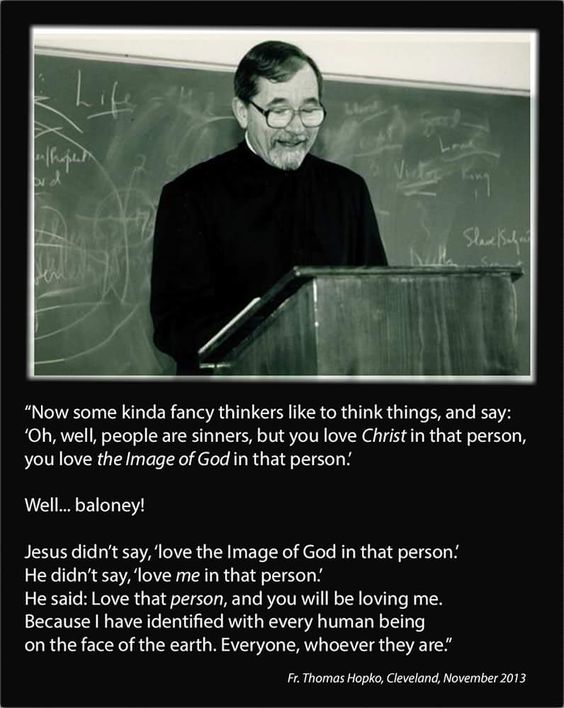 time to talking with the guy next door or a fellow you might meet at the local pub – who also happened to speak Greek, Latin and Hebrew and Slavonic! I kept comparing Father Tom and his style with other more pretentious but less capable theologians whom I had heard.
time to talking with the guy next door or a fellow you might meet at the local pub – who also happened to speak Greek, Latin and Hebrew and Slavonic! I kept comparing Father Tom and his style with other more pretentious but less capable theologians whom I had heard.
I must add this: I, an admirer of C.S. Lewis (as you well know), had heard many Anglican theologians “put down” their fellow Anglican C.S. Lewis. So I was delighted when Father Thomas referred only partly in jest to “Our Holy Father C.S. Lewis”.
Later, at another conference, after lunch we had 45 minutes free. Surely Father Tom badly needed that break. But he had discovered that I was an Episcopalian interested in Orthodoxy, so he spent the entire time talking with me, one on one. Among other things he told me that “the Orthodox Church has total theological unanimity”. (I didn’t believe it. I do now.) And that if I wanted to be a Valiant Martyr for the Faith, I should stay Anglican, because as an Orthodox priest I would be “just another one of the guys”. (I earnestly hoped that was true. It is.)
After that I called him occasionally to ask questions. He took time to listen to me and to give thoughtful answers. I wondered what I had done to deserve all this attention. I once had an obscure query: Would a man ordained by a female bishop be a valid priest? or something like that. He answered, “That question cannot be answered from an Orthodox point of view. We don’t think in those terms.” Suddenly I realized there are other ways of looking at things, and my mind began to flip from Western to Eastern.
I had previously had two denominations bomb out on me, and I wanted to be sure that the Orthodox Church was what it said it was. (I’d heard that line before.) So in the spring of 1988 I took a trip to the East Coast to visit a formerly-Episcopalian now-Orthodox friend, so he could take me to various Orthodox institutions – churches, monastery, seminary – to see for myself.
Everywhere we went there was unity in teaching and in worship. In my current denomination, some were debating “Who is Jesus?” In contrast, at Saint Vlad’s I heard a debate between Father Thomas and Father John Meyendorff on the comparatively insignificant subject: “When Christ became incarnate, did He take on fallen or unfallen human nature?” The debate was moderated by Bishop Kallistos Ware. I felt like I had died and gone to heaven.
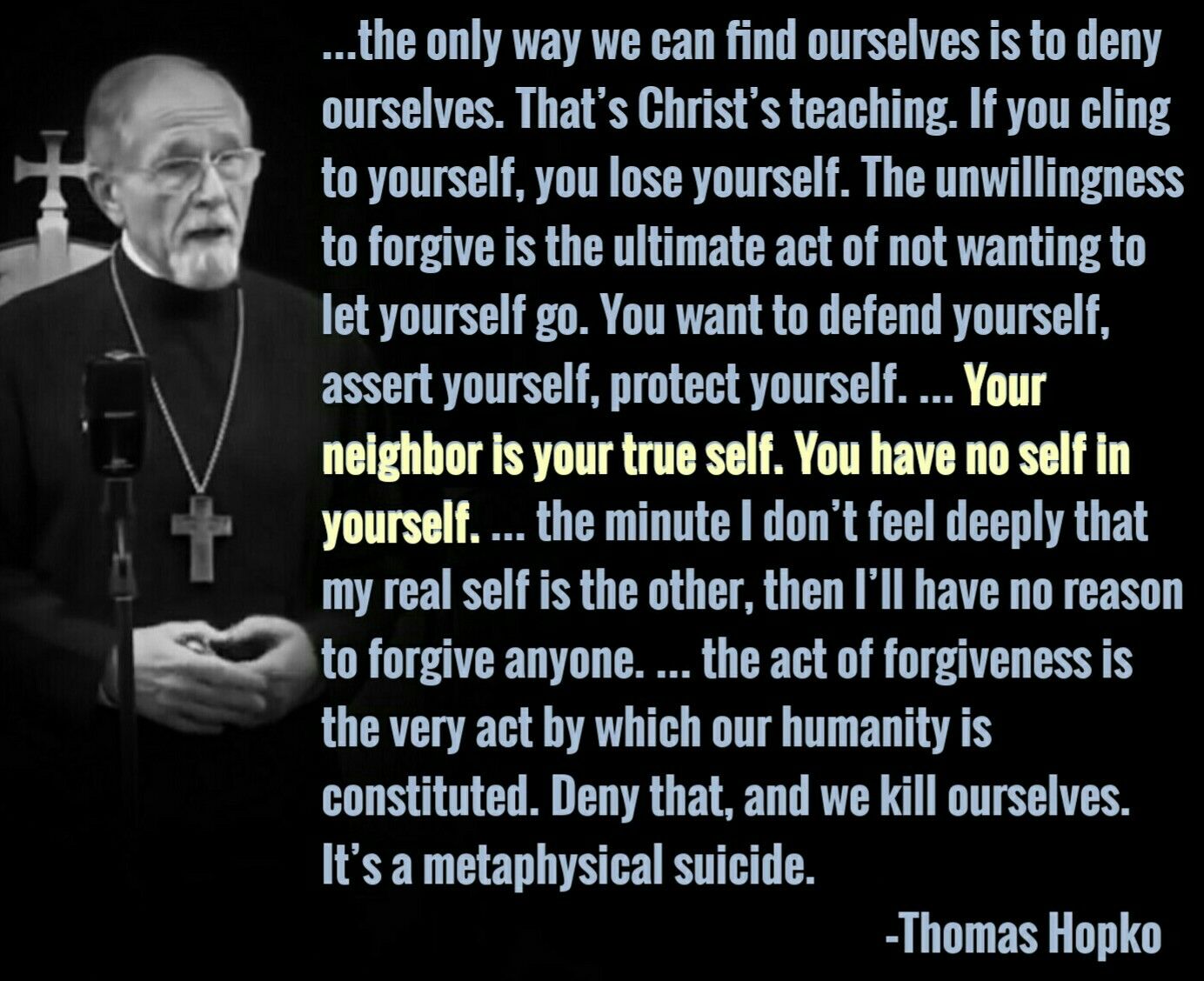 Also, almost everywhere we went I heard people say: Father Tom did this for me. Father Tom did that for me. An “abbess” at a new little Orthodox women’s monastery (now well established) told me this story: She had been a nun in a convent of a certain denomination, but she had talked too much about Orthodoxy and had been put out, literally – out the front door, “goodbye”. She had nowhere to go and no resources. Father Tom and his family took her into their home, and he helped her get established again in the Orthodox Church.
Also, almost everywhere we went I heard people say: Father Tom did this for me. Father Tom did that for me. An “abbess” at a new little Orthodox women’s monastery (now well established) told me this story: She had been a nun in a convent of a certain denomination, but she had talked too much about Orthodoxy and had been put out, literally – out the front door, “goodbye”. She had nowhere to go and no resources. Father Tom and his family took her into their home, and he helped her get established again in the Orthodox Church.
So it wasn’t just “me”. This scholar, this teacher, this author, this man who lectured all over the country, this busy man seemed to take personal time for everybody.
By now I was sure I needed to be Orthodox, so I went home and began the process. Along the way I called him again to ask one more question, which was vitally important to me. (I won’t share it with you.) He gave the right advice, as I can attest now, thirty years later.
I was now so impatient to become Orthodox. Was this going to take forever? Sometimes I felt very discouraged. One afternoon I was particularly “down”. I walked out to the mailbox and found a small envelope labeled from “T. Hopko”. As I opened it, I swear the Holy Spirit flew out. I’ve never experienced anything quite like it. I read the note inside: “Dear Father Bill, I’m praying for you. I’m sure God will work everything out right. In Christ, Father Thomas Hopko”.
We had been Orthodox for a few years. Our new mission church was fairly well established,  but our Metropolitan Philip had not yet given us a name. A package arrived from Father Tom. Inside was an icon of Saint Nicholas right, with a small relic of the saint. Shortly thereafter we were given our name: Saint Nicholas Church.
but our Metropolitan Philip had not yet given us a name. A package arrived from Father Tom. Inside was an icon of Saint Nicholas right, with a small relic of the saint. Shortly thereafter we were given our name: Saint Nicholas Church.
Father Thomas Hopko was a major positive influence in my life.
That was my personal experience with this good, kindly, brilliant, thoughtful, caring man.
“May your memory be eternal, Father Tom.”
I know I’ll remember him with gratitude for the rest of my life. I pray for him every day.
+ + + + + + +
Father Tom’s Maxims are like him: profound, deep, yet practical and down to earth.
He provided his own introduction.
55 Maxims of Christian Living by Father Thomas Hopko
A few years ago, I was asked: “Father Thomas, if you summarized, in the shortest form, what a practical life of a believing Christian, of a human being who believes in God and believes in Christ, what would it be like? What kind of maxims or rules would that include?” And in response to that request, I made up a list of what I called “55 Maxims,” 55 things that a believer, very simply, would do if they were really a believer and were really obedient to God and wanted to live the way God would have us live.
1 Be always with Christ and trust God in everything.
2 Pray as you can, not as you think you must.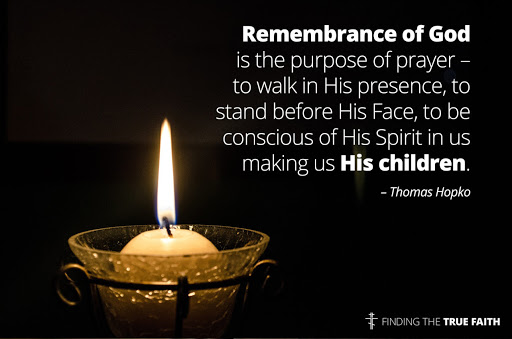
3 Have a keepable rule of prayer done by discipline.
4 Say the Lord’s Prayer several times each day.
5 Repeat a short prayer when your mind is not occupied.
6 Make some prostrations when you pray.
7 Eat good foods in moderation and fast on fasting days.
8 Practice silence, inner and outer.
9 Sit in silence 20 to 30 minutes each day.
10 Do acts of mercy in secret.
11 Go to liturgical services regularly. 
12 Go to confession and holy communion regularly.
13 Do not engage intrusive thoughts and feelings.
14 Reveal all your thoughts and feelings to a trusted person regularly.
15 Read the scriptures regularly.
16 Read good books, a little at a time.
17 Cultivate communion with the saints.
18 Be an ordinary person, one of the human race.
19 Be polite with everyone, first of all family members.
20 Maintain cleanliness and order in your home.
21 Have a healthy, wholesome hobby.
22 Exercise regularly.
23 Live a day, even a part of a day, at a time.
24 Be totally honest, first of all with yourself.
25 Be faithful in little things.
26 Do your work, then forget it.
27 Do the most difficult and painful things first.
28 Face reality.
29 Be grateful.
30 Be cheerful.
 31 Be simple, hidden, quiet and small.
31 Be simple, hidden, quiet and small.
32 Never bring attention to yourself.
33 Listen when people talk to you.
34 Be awake and attentive, fully present where you are.
35 Think and talk about things no more than necessary.
36 Speak simply, clearly, firmly, directly.
37 Flee imagination, fantasy, analysis, figuring things out.
38 Flee carnal, sexual things at their first appearance.
39 Don’t complain, grumble, murmur or whine.
40 Don’t seek or expect pity or praise.
41 Don’t compare yourself with anyone.
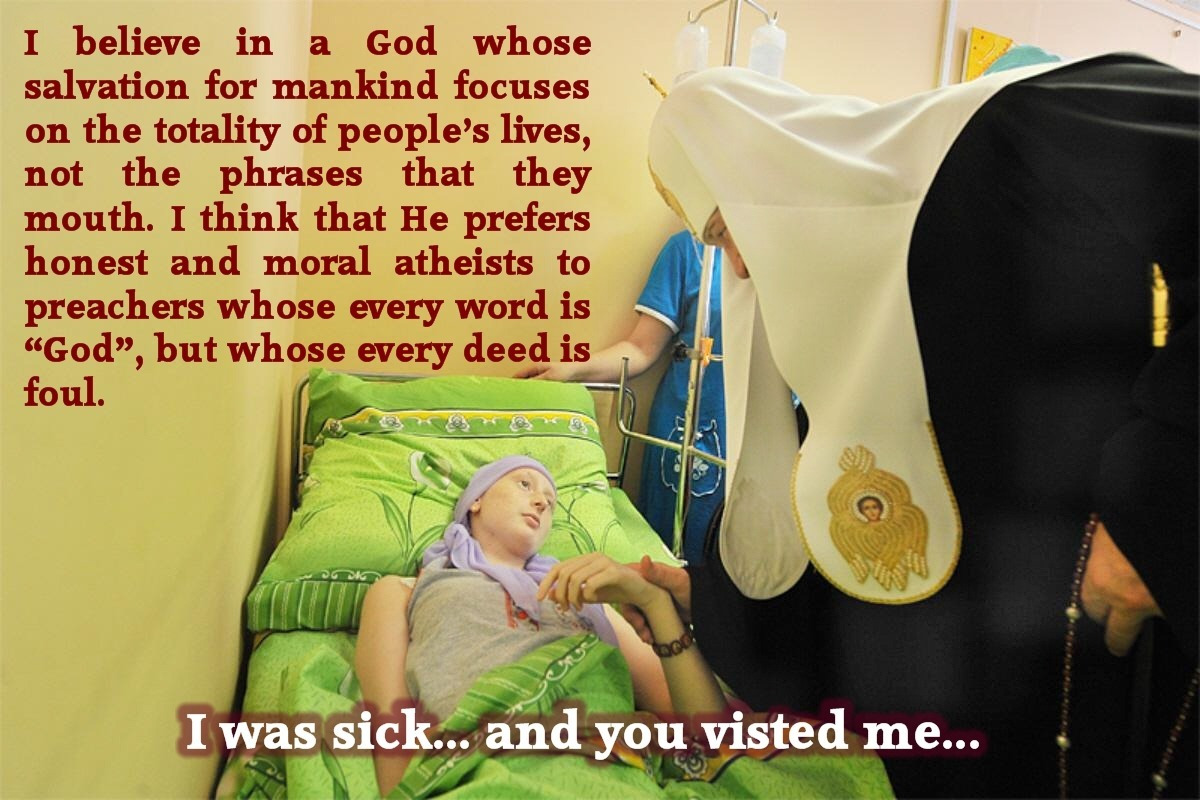
42 Don’t judge anyone for anything.
43 Don’t try to convince anyone of anything.
44 Don’t defend or justify yourself.
45 Be defined and bound by God, not people.
46 Accept criticism gracefully and test it carefully.
47 Give advice only when asked or when it is your duty.
48 Do nothing for people that they can and should do for themselves.
49 Have a daily schedule of activities, avoiding whim and caprice.
50 Be merciful with yourself and others.
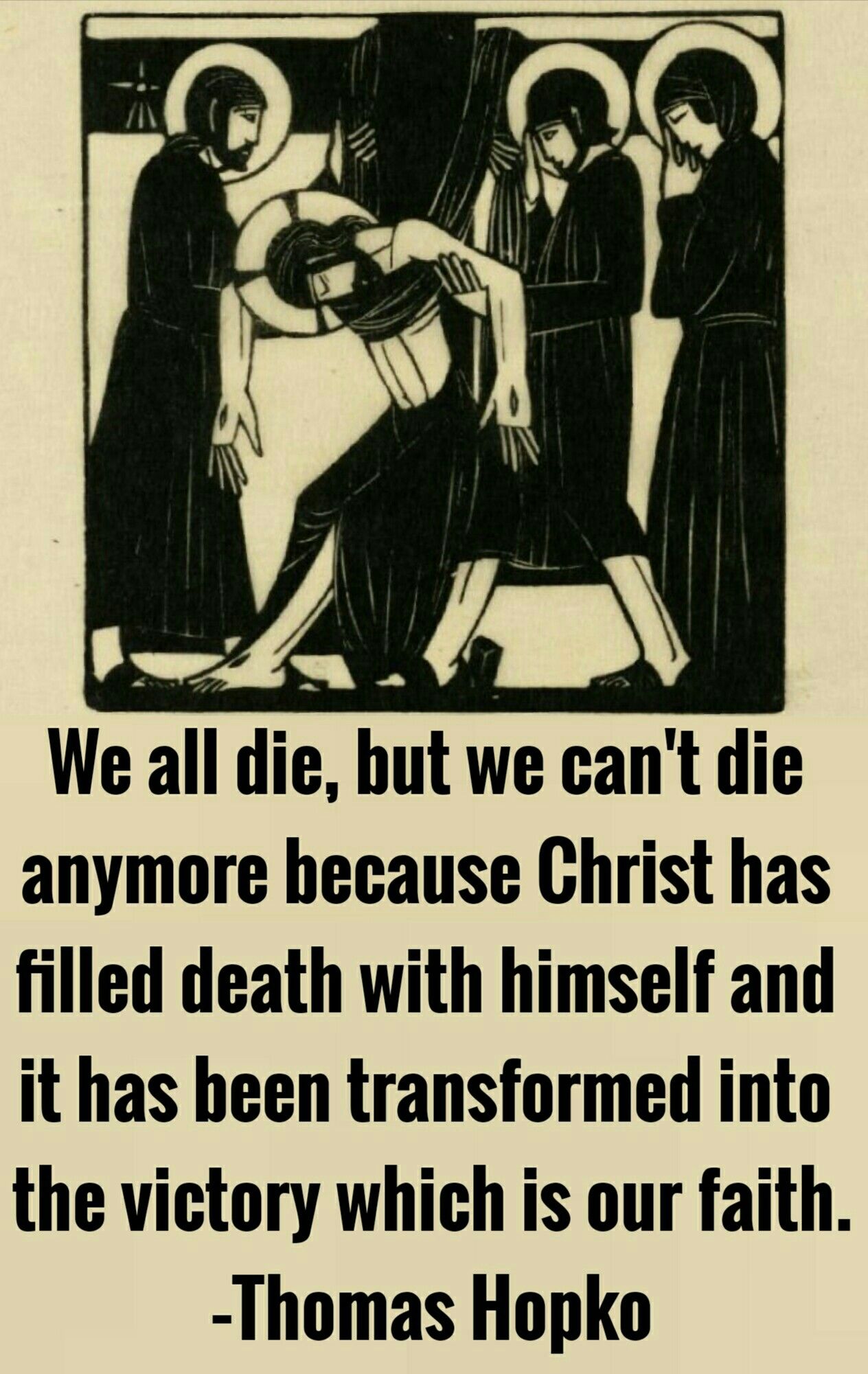 51 Have no expectations except to be fiercely tempted to your last breath.
51 Have no expectations except to be fiercely tempted to your last breath.
52 Focus exclusively on God and light, and never on darkness, temptation and sin.
53 Endure the trial of yourself and your faults serenely, under God’s mercy.
54 When you fall, get up immediately and start over.
55 Get help when you need it, without fear or shame.
+ + + + + + +

I love his podcasts and lectures. Just the sound of his voice, you know he’s the real thing. I think my favorites are the 55 Names of Jesus taken from scripture. Thanks for the reminder on his Maxims.
Some of his podcasts got me through the nights when I was having a lot of pain and couldn’t sleep. God bless that man.
I knew Fr Tom very slightly, heard him speak a few times, always treasured his memory.
He often used his mother as an example of a pious Orthodox Christian: “My mother told me…” He did this so often that his students at St Vlad’s began to refer to her as The Tom-otokos.
Thank you so very much for writing this on father Tom. My husband and I were so blessed to travel with him and Matushka Anne to Greece with Saint Vladimir seminary. He is such a wonderful man and I can’t thank you enough for doing that entire article on him!
As I was writing these down, I recognize a few. In fact my spiritual father quoted #2 to me when we were discussing prayer rules.
If we look at #2 & 3: Pray as you can, not as you think you must……..then: have a keepable rule of prayer done by discipline ~ I have a bit of trouble. Discipline requires practice of something in order to become better at it. Maybe it’s just me, but don’t they seem to be contradictory? Or are we to pray as we can but do it with discipline (i.e. with regularity)?
I hope this question isn’t as stupid as it seems when I read it, haha. I wouldn’t worry about it, but my prayer rule is very important to me.
No honest question is stupid. And I think you’ve pretty much answered it yourself. So “ha ha” to you too!
Here’s how I understand what Father Tom said. We should have a set discipline. We should offer our prayers, Scripture readings etc. faithfully at certain regular times and in certain ways – subject to change if need be. But we should pray as we can, always in the context of Orthodox Tradition, of course. Some can give more time to prayer, like me in my retirement. Some can give less, like a mother with a newborn child. Some people pray best using the Jesus Prayer or even just silent meditation. Others prayer better using fixed forms. As part of our discipline, we should try to grow in ways which are difficult for us, if we can. For myself, I tried for a long time to use the Jesus Prayer because I thought that’s what I was supposed to do. I couldn’t do it; after 30 seconds my mind was wandering. I need the fixed forms. But I’m still learning to use the Jesus Prayer for brief periods during the day. That’s how I am can pray now. At my age how I can pray will likely change, and that will be ok, too. I finally realized that simply spending the time with God is most important, no matter how we can do it.
Thank you for writing this Fr. Bill. Our family became Orthodox Christians 15 years ago — fugitives from “high church” Episcopal and our beloved priest who married us had retired and soon passed away (we’re sure he would have become orthodox christian because he was just so “there”) God has been so good to us. Fr. Tom’s 55 maxims are something I’ve tried to go back to again and again, but after reading this, I must say that I need to just print them out and carry them around to read during the day every day. Thank you for this encouragement!
My most vivid memory of Fr. Tom Hopko is when he served the Divine Liturgy for a gathering of Orthodox clergy wives. I had never to that point experienced a priest who served with such conviction, grace and love. It was unbelievable.